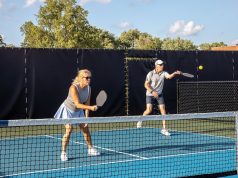Strongest association seen for quercetin subclass of flavonols, but no association seen for total flavonoid intake
By Lori Solomon HealthDay Reporter
TUESDAY, June 20, 2023 (HealthDay News) — A higher intake of flavonols, particularly quercetin, is associated with lower odds of frailty onset, according to a study recently published in the American Journal of Clinical Nutrition.
Steven Oei, from Wageningen University in the Netherlands, and colleagues examined the association between dietary flavonoids, their subclasses (flavonols, flavan-3-ols, flavonones, flavones, anthocyanins, and polymeric flavonoids), quercetin (a specific flavonol), and frailty onset in adults. The analysis included 1,701 individuals participating in the Framingham Heart Study with no frailty at baseline (1998 to 2001). Frailty was assessed from 2011 to 2014.
The researchers found that although total flavonoid intake was not statistically associated with frailty onset (adjusted odds ratio, 1.00; 95 percent confidence interval, 0.99 to 1.01), each 10 mg/day of higher flavonol intake was associated with 20 percent lower odds of frailty onset (adjusted odds ratio, 0.80; 95 percent confidence interval, 0.67 to 0.96). Every 10 mg/day of higher quercetin intake was associated with 35 percent lower odds of frailty onset; however, there were no associations seen between other subclasses of flavonoids and frailty.
“This data suggests that there may be particular subclasses of flavonoids that have the most potential as a dietary strategy for frailty prevention,” coauthor Shivani Sahni, Ph.D., of Harvard Medical School in Boston, said in a statement.
Copyright © 2023 HealthDay. All rights reserved.








